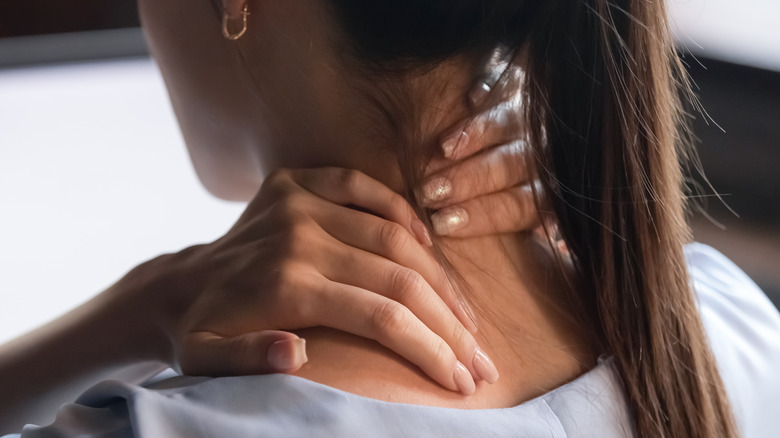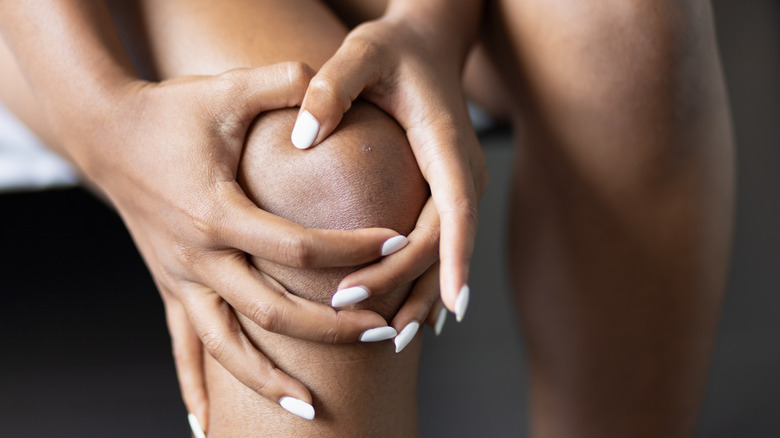Should You Be Concerned If Your Joints Pop And Crack?
It's Sunday morning — your day off — so you get to sleep in a little. No alarm today; you wake up when your body's good and ready. You open your eyes to a sweet ray of sunshine peeking through your window. You do a big, relaxing, full-body stretch to start the day, and ... what's that? So many snaps, crackles, and pops that you look around confused for a moment ... Did someone just pour a bowl of Rice Krispies, or did every joint from your neck to your ankles just make an audible crackling noise?
According to Pinnacle Orthopaedics, the ominous cracking sound your knees or knuckles make is the result of popping nitrogen bubbles. Our joints are lubricated by synovial fluid, a thick pocket of liquid that acts as a cushion between bones and limits friction when we move (via MedlinePlus). That fluid consists of oxygen, carbon dioxide, and nitrogen, so naturally, when joints move, some gas escapes from the fluid, creating a popping sound.
All that racket can be a little disconcerting — but should you be worried about your body's symphony of joints cracking and popping, or is this something to shrug off? What if your joints are not just cracking when you wake up but make noises throughout the day? Here's what it means for your health, and what you may do about it.
Why do joints crack and pop?
Popping joints are super common, and in fact, most people experience rather chatty joints, per Johns Hopkins Medicine. Unless you experience pain or swelling with your cracking joint, there is nothing to worry about. That said, there are a couple of reasons it might be happening.
If you notice the popping happens more when you repeatedly move a particular joint — like your shoulder cracking every time you reach overhead to put away the dishes or your hip making a loud snap over and over again in yoga class — it might have to do with a tight muscle or tendon moving over a bone. Dr. Roshini Raj with Health.com recommends some gentle stretching of the affected joint and surrounding muscles to ease the tension and lessen the noise.
Maybe you've come to the realization that the popping has started happening more as you've gotten older. There's a perfectly plausible reason for that, too. Dr. Kim L. Stearns, an orthopedic surgeon, explains to the Cleveland Clinic that joint cartilage wears away as part of the natural aging process. For that reason, the surfaces get a little rougher and when they rub together it makes a sound.
While popping joints are generally harmless, you can try to avoid the creakiness altogether. Dr. Stearns says, "We say motion is lotion — the more you move, the more your body lubricates itself. When you've been sitting or lying around, fluid in the joints doesn't move. The more active you are, the more your joints lubricate themselves." All you've got to do is stop worrying and start moving!

